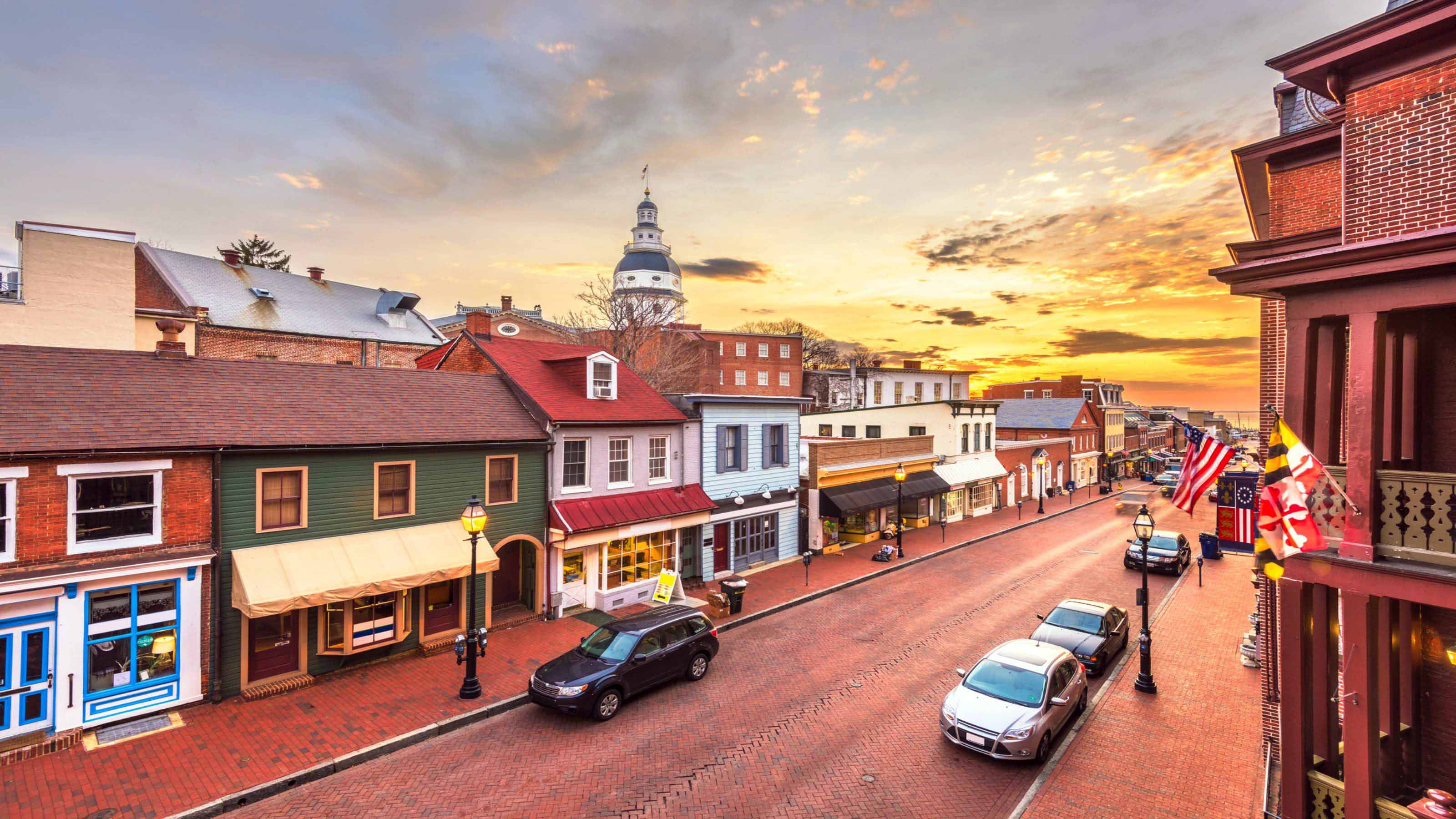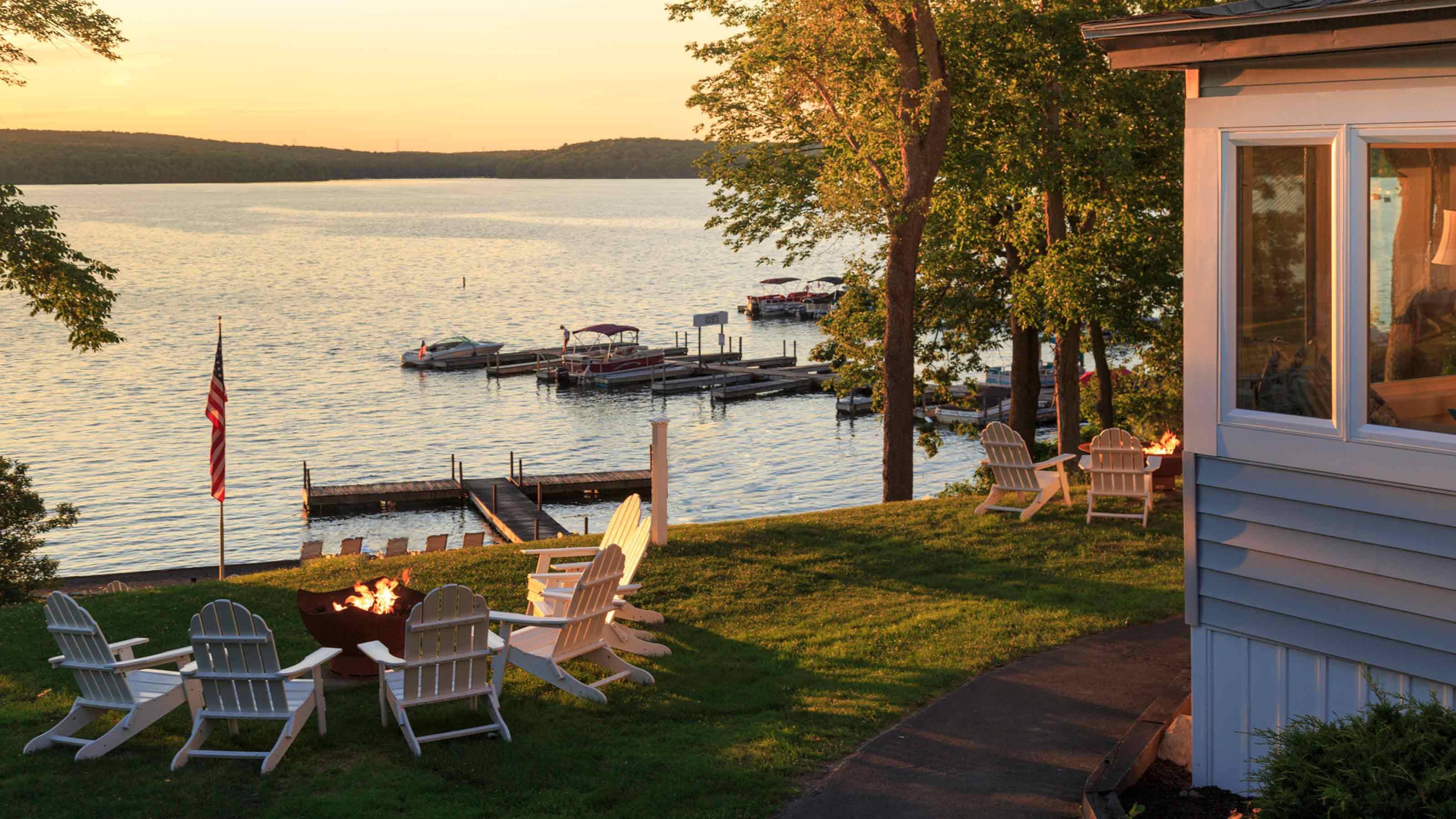Bargains on Vacation Homes
Vacation homes are once again a hot commodity for buyers who've got the cash.

Profit and prosper with the best of Kiplinger's advice on investing, taxes, retirement, personal finance and much more. Delivered daily. Enter your email in the box and click Sign Me Up.
You are now subscribed
Your newsletter sign-up was successful
Want to add more newsletters?

Delivered daily
Kiplinger Today
Profit and prosper with the best of Kiplinger's advice on investing, taxes, retirement, personal finance and much more delivered daily. Smart money moves start here.

Sent five days a week
Kiplinger A Step Ahead
Get practical help to make better financial decisions in your everyday life, from spending to savings on top deals.

Delivered daily
Kiplinger Closing Bell
Get today's biggest financial and investing headlines delivered to your inbox every day the U.S. stock market is open.

Sent twice a week
Kiplinger Adviser Intel
Financial pros across the country share best practices and fresh tactics to preserve and grow your wealth.

Delivered weekly
Kiplinger Tax Tips
Trim your federal and state tax bills with practical tax-planning and tax-cutting strategies.

Sent twice a week
Kiplinger Retirement Tips
Your twice-a-week guide to planning and enjoying a financially secure and richly rewarding retirement

Sent bimonthly.
Kiplinger Adviser Angle
Insights for advisers, wealth managers and other financial professionals.

Sent twice a week
Kiplinger Investing Weekly
Your twice-a-week roundup of promising stocks, funds, companies and industries you should consider, ones you should avoid, and why.

Sent weekly for six weeks
Kiplinger Invest for Retirement
Your step-by-step six-part series on how to invest for retirement, from devising a successful strategy to exactly which investments to choose.
Buoyed by gains in their investments and home equity, vacation-home buyers have returned to the beaches, woods and mountains in search of bargains on vacation properties. And they’ll find plenty, although they’ve probably missed out on rock-bottom prices.
Vacation-home sales rose 29.7% in 2013 from the year before, and the median price was up 13%, to $168,700, according to an annual survey by the National Association of Realtors. Sales are still well below their 2006 peak. And even though prices are rising, they’re still attractive. “It’s still a good opportunity for those who feel comfortable in their finances and want to diversify out of the stock market,” says Lawrence Yun, the NAR’s chief economist. Most buyers will use their homes for family vacations, and almost one-third anticipate living in them in retirement. The typical buyer is 47 and comes from a two-earner household with a median income of $90,660. More than one-third of buyers paid cash; of those who took out a mortgage in 2013, more than half put down 30% of the purchase price. (A down payment of 15% to 20% is typically required.)
The stock market has given the vacation-home market a boost. Buyers in the 45-to-64 age group, who own the biggest share of financial assets, are selling some of them to raise the cash they need and are using dividend payments to cover mortgage expenses, says a report from mortgage guarantor Fannie Mae. Real estate agents say that buyers are also raising cash by borrowing against home equity in their primary residence—with, say, a low-cost line of credit. The cost of mortgage borrowing is still low, despite interest rate increases over the past year. The average 30-year fixed rate was recently 4.3%. If you’re still paying for your primary home, lenders will consider whether you have enough income to cover another mortgage (see mortgage rates on vacation homes in your area).
From just $107.88 $24.99 for Kiplinger Personal Finance
Become a smarter, better informed investor. Subscribe from just $107.88 $24.99, plus get up to 4 Special Issues

Sign up for Kiplinger’s Free Newsletters
Profit and prosper with the best of expert advice on investing, taxes, retirement, personal finance and more - straight to your e-mail.
Profit and prosper with the best of expert advice - straight to your e-mail.
Top destinations for vacation-home buyers in 2013 included Arizona and California, where home values overall have regained one-third of what they lost in the bust, and Florida, a relative bargain with prices up just 18%. Mountain locations, such as Asheville, N.C., and Vail, Colo., offer some of the lowest prices compared with coastal locations, and Michigan and Wisconsin are always relatively affordable, says Yun.
See Also: Search for Vacation Homes in Your Area on Trulia.com
The deeply discounted properties that were repossessed and then sold by banks are rare now, says Tampa, Fla., buyer’s agent Dawn Rae. But buyers can still find good deals—for instance, a three-bedroom townhome in the desirable northeast section of St. Petersburg, with a hard-to-find deep-water dock, recently listed for $314,900. Or, in Treasure Island, a beach community on the Gulf of Mexico, a remodeled, two-bedroom condo with a boat dock that you can lease listed for $289,900.
Most sellers have priced their homes realistically, says Rae, so you may not have much negotiating room. Prepare to put down a persuasive deposit or even make an all-cash deal.
Today’s buyers may face a demographic hurdle by the time they’re ready to sell. The population most likely to buy a second home (ages 45 to 64) is expected to grow more slowly than the total adult population over the next 20 years. But if you can get a place in the sun today for a price you can afford—that’s priceless.
Profit and prosper with the best of Kiplinger's advice on investing, taxes, retirement, personal finance and much more. Delivered daily. Enter your email in the box and click Sign Me Up.

-
 Dow Adds 1,206 Points to Top 50,000: Stock Market Today
Dow Adds 1,206 Points to Top 50,000: Stock Market TodayThe S&P 500 and Nasdaq also had strong finishes to a volatile week, with beaten-down tech stocks outperforming.
-
 Ask the Tax Editor: Federal Income Tax Deductions
Ask the Tax Editor: Federal Income Tax DeductionsAsk the Editor In this week's Ask the Editor Q&A, Joy Taylor answers questions on federal income tax deductions
-
 States With No-Fault Car Insurance Laws (and How No-Fault Car Insurance Works)
States With No-Fault Car Insurance Laws (and How No-Fault Car Insurance Works)A breakdown of the confusing rules around no-fault car insurance in every state where it exists.
-
 25 Small Towns With Big Millionaire Populations
25 Small Towns With Big Millionaire Populationsinvesting Large concentrations of high-net-worth households are found in surprising locales across the U.S. Check out the latest list of American small towns teeming with well-to-dos.
-
 What to Consider Before Buying a Vacation Home
What to Consider Before Buying a Vacation HomeSmart Buying If you're thinking of buying a vacation home, we've got a guide on what to expect.
-
 The Traveler’s Guide to Home Sharing
The Traveler’s Guide to Home SharingTravel Whether you’re new to short-term rentals or an old hand, you can improve your experience by following these tips.
-
 3 Tips to Update Your Bathroom for Less
3 Tips to Update Your Bathroom for Lessreal estate The time of year, where you shop, and how you design can all affect your remodel costs.
-
 Trim Your Mortgage Rate With a 'Nonbank'
Trim Your Mortgage Rate With a 'Nonbank'real estate Online lenders could help you cut your expenses.
-
 Seven Reasons Your House Is Still on the Market
Seven Reasons Your House Is Still on the Marketreal estate You stuck a for-sale sign in the front yard but the offers aren’t rolling in. Here’s why.
-
 5 Reasons You Hate Your Homeowners Association
5 Reasons You Hate Your Homeowners Associationreal estate You want the property, you sign on with an HOA and bear the consequences.
-
 Scam Alerts: Beware Unattended ATMs, Down-Payment Fraud
Scam Alerts: Beware Unattended ATMs, Down-Payment FraudScams Fresh hustles and cons you need to avoid.